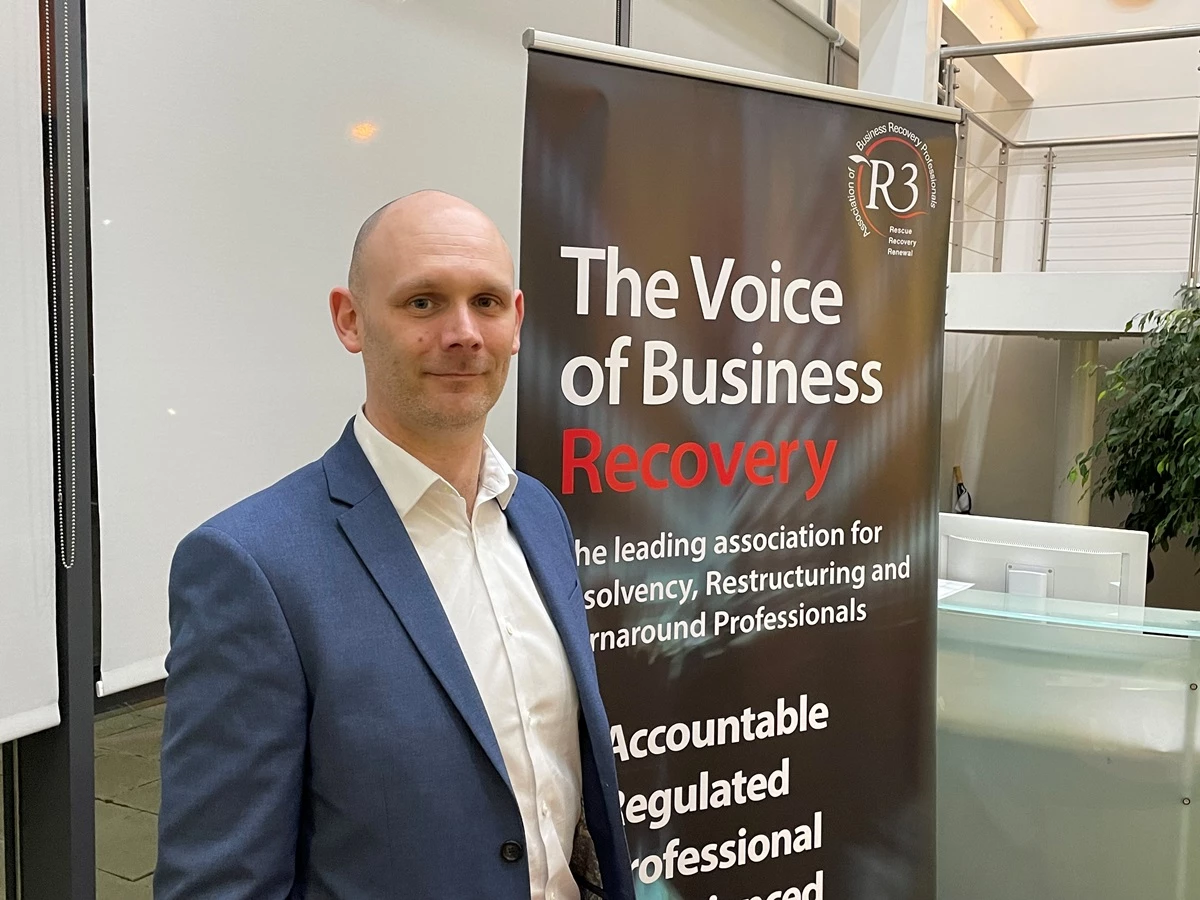
Partner Article
'One Step Forward, One Step Back' For North East Firms As Insolvency Figures Stay High
North East business owners could be taking ‘one-step forward, one-step back’ through the rest of the year as the full impact of recent economic shockwaves work their way through the system.
That’s the view of the North East chair of insolvency and restructuring trade body R3, Chris Ferguson, after the latest official figures showed that corporate insolvency levels for England and Wales are still substantially higher than they were before the pandemic.
While the latest Insolvency Service statistics have revealed a month-on-month drop of almost a third, from 2,471 cases in March down to 1,685 cases last month, the April 2023 corporate insolvency figure is still 82% higher than for the same month last year (925) and 18% up on the number for April 2019 (1,426).
And with the full impact of a year’s worth of interest rises still to be felt, Chris Ferguson is advising North East business owners to be ready to take steps to secure a sustainable future for their businesses if financial problems start to arise.
The statistics show that the number of firms being put into liquidation through Creditors’ Voluntary Liquidations (CVLs), a procedure initiated by directors of insolvent firms to close their companies, remain at their highest level in more than six decades.
Chris Ferguson, who is head of recovery & insolvency at Gosforth-based RMT Accountants & Business Advisors, says: “Despite the monthly fall in corporate insolvency figures, total numbers are still above pre-pandemic levels, with the key reason for this being that Creditors’ Voluntary Liquidations are higher than they were in 2019.
“After three years of extremely challenging trading conditions, alongside a very volatile economic backdrop, it’s clear that many directors feel that they are no longer able to continue to trade their businesses.
“Businesses right across the supply chain are desperately trying to balance increasing costs without the need to pass these increases onto their customers and, with inflation remaining stubbornly high, that balance is unlikely to be sustainable.
“We are also waiting to see the real impact of rising interest rates – and may not see the cumulative impact of the rate rises until later in the year as fixed term credit arrangements come to an end.
“Businesses could potentially face a credit cost shock just as inflation is predicted to ease, and could mean we’re looking at a one-step forward, one-step back situation, rather than a sustained improvement in the trading climate.”
Personal insolvencies across England and Wales also showed a month-on-month fall last month, dropping by 21.4% to 9,996 in April compared to 11,447 in March.
They also decreased by 8.9% from April 2022’s total of 9,873 and by 7.1% from pre-pandemic levels in April 2019 (9,685).
Chris Ferguson continues: “The fall in the personal insolvency figures needs to be views with some caution as they will reflect a changing debt solutions market where options for individuals might not be as readily available as they were previously.
“With money worries remaining a key concern for many people across England and Wales, and the challenges that businesses are also facing, North East company directors should remain ready to act if they see any signs their business might be distressed.
“Seeking advice regarding financial difficulties is far from an easy conversation to have, but helps to clearly set out potential options that are available, and the earlier it happens, the greater the prospects are of delivering a successful restructuring solution.”
This was posted in Bdaily's Members' News section by Julian Christopher .
Enjoy the read? Get Bdaily delivered.
Sign up to receive our daily bulletin, sent to your inbox, for free.








 Navigating the messy middle of business growth
Navigating the messy middle of business growth
 We must make it easier to hire young people
We must make it easier to hire young people
 Why community-based care is key to NHS' future
Why community-based care is key to NHS' future
 Culture, confidence and creativity in the North East
Culture, confidence and creativity in the North East
 Putting in the groundwork to boost skills
Putting in the groundwork to boost skills
 £100,000 milestone drives forward STEM work
£100,000 milestone drives forward STEM work
 Restoring confidence for the economic road ahead
Restoring confidence for the economic road ahead
 Ready to scale? Buy-and-build offers opportunity
Ready to scale? Buy-and-build offers opportunity
 When will our regional economy grow?
When will our regional economy grow?
 Creating a thriving North East construction sector
Creating a thriving North East construction sector
 Why investors are still backing the North East
Why investors are still backing the North East
 Time to stop risking Britain’s family businesses
Time to stop risking Britain’s family businesses